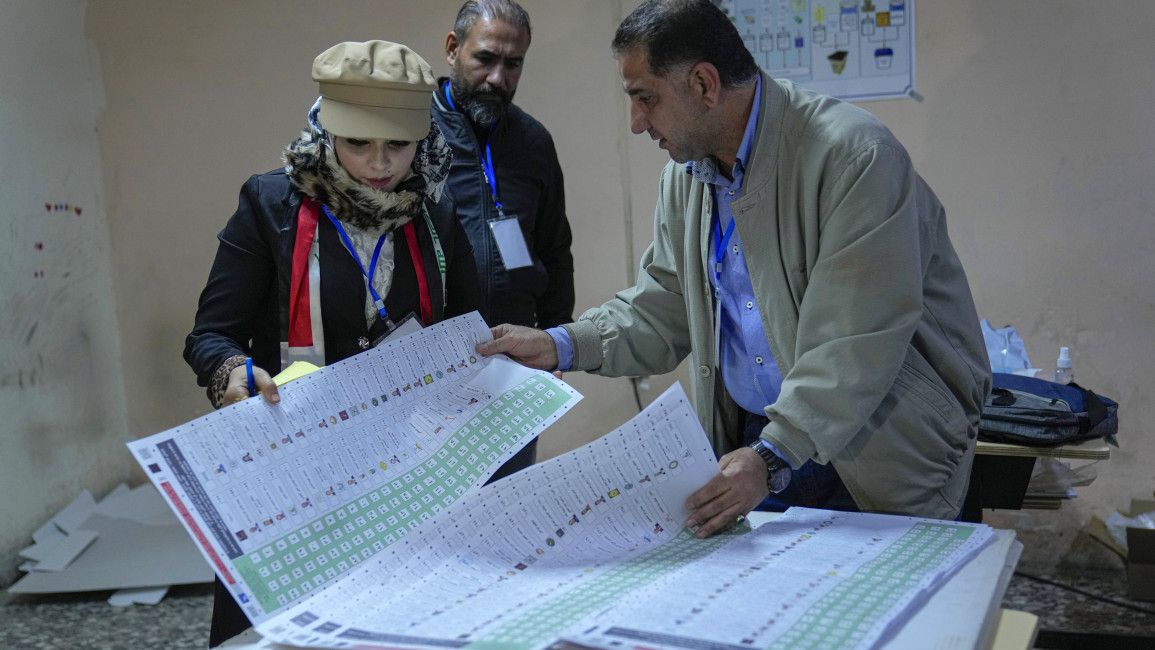IHEC reveals preliminary results of Iraq's provincial elections, Iran-backed parties emerge victorious
Iraq's Independent High Electoral Commission (IHEC) unveiled the preliminary results of Monday's provincial elections late on Tuesday, disclosing a 41 per cent voter turnout despite the boycott by the influential cleric Muqtada al-Sadr.
Monday, 18 December, marked Iraq's first provincial election in a decade, with over 23 million eligible voters across 15 provinces (excluding four in the northern Kurdistan region). The IHEC reported the active participation of more than six million Iraqis in the electoral process. Twenty-three million eligible voters were identified, but only 16 million chose to register to cast their ballots.
Preliminary results indicated that the Taqadum Alliance, led by Mohammed al-Halbousi, Iraq's former parliament speaker, secured the majority of votes in Baghdad and the second position in western Anbar province.
In Kirkuk, a multi-ethnic and contested province, a Kurdish alliance comprising the Patriotic Union of Kurdistan (PUK) and The Kurdistan Communist Party won the most votes, with Arab Sunnis in second place and Turkmen in third.
Iran-backed Shia parties, including Nouri al-Maliki's State of Law Coalition and Hadi Amiri's We Build Coalition, emerged victorious in several provinces.
In Nineveh, Masaud Barzani's Kurdistan Democratic Party (KDP) secured seven seats.
The electoral commission initially reported a voter turnout of 17 per cent by Monday afternoon. However, as the day progressed, the figure surged to 41 per cent, prompting scepticism among many Iraqis about the commission's credibility and the accuracy of the reported turnout.
The last provincial elections in Iraq occurred on 20 April 2013, resulting in a majority win for al-Maliki. However, in response to the 2019 anti-corruption protests, the Iraqi parliament voted to dissolve the provincial councils on 28 October 2019.
On 13 November, Iraqi Shia cleric and political leader Muqtada al-Sadr called on his supporters to boycott local elections, which analysts expect will cause a low voter turnout.
Notably, the Iraqi National Accord, led by former Prime Minister Ayad Allawi, chose not to participate in the elections.
The current vote is a test for the country's emerging democracy established post-Saddam Hussein's removal in 2003 by an illegal US and UK-led invasion. These elections are crucial in shaping power dynamics in the multi-nation country amidst growing influence from Iran-aligned groups.
Kirkuk's multi-ethnic and oil-rich province participated for the first time since 2005 despite being in a constitutionally disputed area between the Kurdistan region and the federal government in Baghdad.
Sadr claimed that a boycott would weaken the legitimacy of internal and international elections.
Sadr announced he was exiting political life in conflict-scarred Iraq in August last year after a long summer of violent demonstrations and a sit-in by his supporters at the parliament building.



